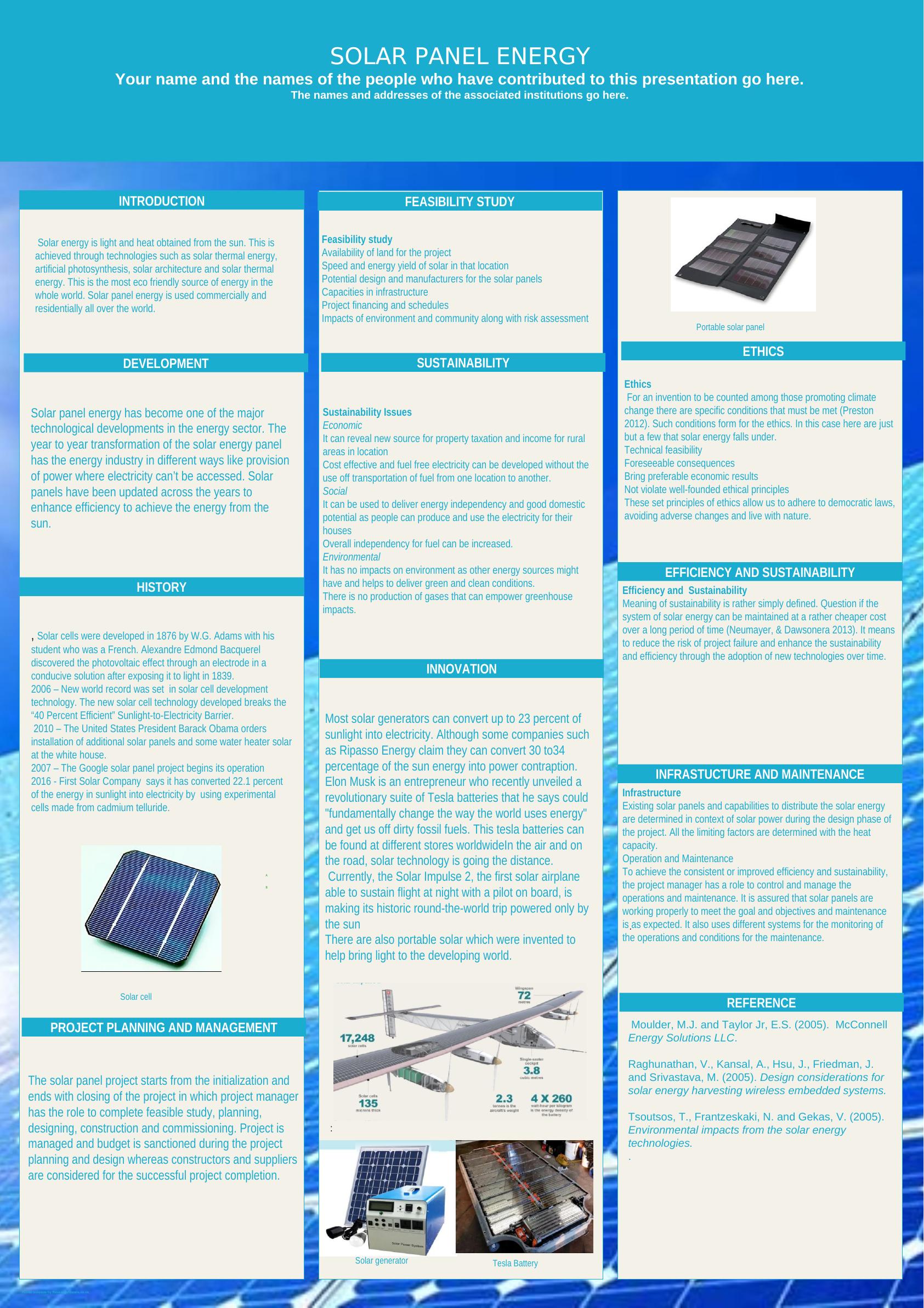Solar Panel Energy: Feasibility, Sustainability, History, Innovation, Ethics, and Infrastructure
Unit plan for the course Engineering Innovation and Ethics at ECU, covering topics of innovation in organizations and ethics in professional engineering.
1 Pages997 Words130 Views
Added on 2023-06-13
About This Document
This presentation covers the feasibility study, sustainability, history, innovation, ethics, and infrastructure of solar panel energy. It discusses the availability of land, speed and energy yield, potential design and manufacturers, capacities in infrastructure, project financing and schedules, impacts on environment and community, and risk assessment. It also explores the economic, social, and environmental sustainability issues of solar panel energy. The presentation highlights the major technological developments in the energy sector, including the invention of solar cells and the development of new solar cell technology. It also discusses the ethics of solar energy and the importance of adhering to democratic laws and avoiding adverse changes. Finally, it covers the efficiency and sustainability of solar energy, as well as the infrastructure and maintenance required for successful solar panel projects.
Solar Panel Energy: Feasibility, Sustainability, History, Innovation, Ethics, and Infrastructure
Unit plan for the course Engineering Innovation and Ethics at ECU, covering topics of innovation in organizations and ethics in professional engineering.
Added on 2023-06-13
ShareRelated Documents
End of preview
Want to access all the pages? Upload your documents or become a member.
conventional photovoltaics systems Assignment PDF
|18
|3480
|361
Solar Thermal Power Station: Pre-Feasibility Study
|16
|3029
|413
Project Sun Tracker
|8
|947
|448
Literature Review on Solar Car
|9
|1588
|88
Solar Power and Batteries for your Home
|6
|928
|497
1. SOLAR PHOTO-VOLTAIC ENERGY By Name. Course Instructo
|11
|1910
|269

